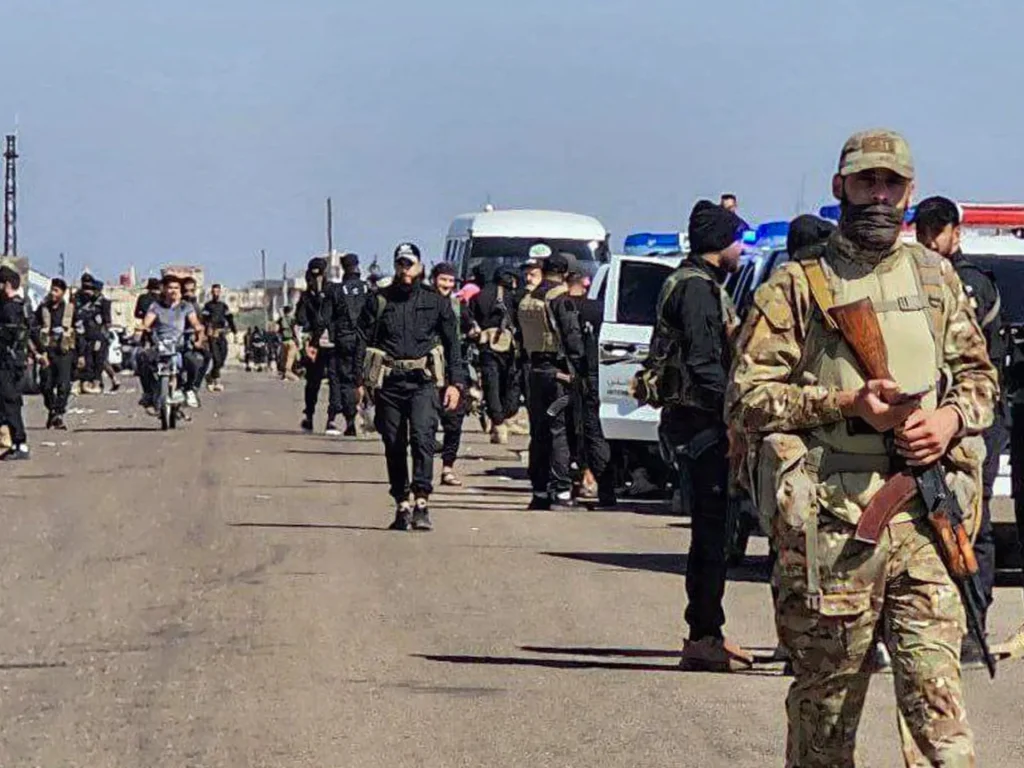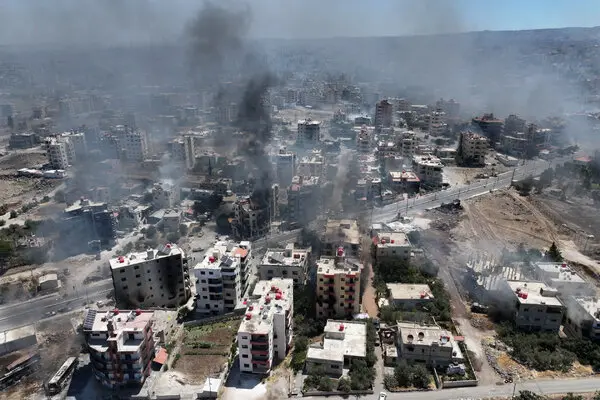A fragile calm has taken hold in Syria’s southern Sweida province, a day after a ceasefire was declared to halt a week of intense sectarian violence that left more than 1,000 people dead.
The truce, announced on Saturday, has so far held following earlier failed attempts to end the bloody clashes between Druze fighters and Bedouin rivals—violence that later drew in Syrian government forces, Israeli airstrikes, and armed tribal groups from other regions.
On Sunday morning, AFP journalists reported a lull in the fighting on the outskirts of Sweida city, while Syrian security forces were seen deployed in some areas to uphold the ceasefire. At least one convoy carrying humanitarian aid was seen heading toward the predominantly Druze city.
The UK-based Syrian Observatory for Human Rights reported “cautious calm” across the province since midnight on Saturday. It noted that government forces had shut off roads into the region in an effort to keep tribal fighters from returning.
The Observatory raised the death toll to over 1,000, including 336 Druze combatants, 298 Druze civilians, 342 members of the Syrian security forces, and 21 Sunni Bedouin fighters.
Residents, Druze leaders, and observers have accused the Syrian regime of siding with Bedouin factions during the clashes. Witnesses alleged that government troops carried out summary executions when they entered Sweida days earlier.
“The city hasn’t been this quiet in a week,” said Hanadi Obeid, a 39-year-old doctor speaking to AFP.

The Syrian interior ministry said all tribal forces had vacated Sweida city and that fighting inside the city’s neighbourhoods had stopped.
According to the Observatory, Druze fighters regained full control of the city on Saturday evening. Interim President Ahmed al-Sharaa confirmed the ceasefire and pledged protection for Syria’s religious and ethnic minorities, amid the most serious outbreak of sectarian unrest since Islamist forces toppled Bashar al-Assad’s regime in December.
A spokesperson for Syria’s tribal and clan council confirmed that fighters had withdrawn from the city “in response to the presidency’s call and the agreed terms.”
A medic in Sweida, speaking anonymously due to security fears, said the situation was “completely calm” on Sunday, although no medical or humanitarian relief had yet arrived.
State media SANA released images showing aid being packed in Damascus and quoted Health Minister Musab al-Ali as saying that assistance would be sent to Sweida’s central hospital, where bodies had been accumulating.
With a population of around 150,000, Sweida city has endured a week without power or running water, and residents have been confined indoors as food supplies dwindle. The UN’s migration agency estimated that more than 128,000 people across the province have been displaced due to the conflict.
US Special Envoy to Syria, Tom Barrack, warned on Sunday that the country was at a “critical juncture,” urging all factions to stop the violence and avoid further cycles of tribal retribution.
He condemned the brutality from all sides and said such actions were eroding what little authority the Syrian state had left.
Saturday’s ceasefire announcement came shortly after the United States brokered a truce between Israel and the Syrian regime. Israel had targeted military positions in both Sweida and Damascus earlier in the week, claiming it was acting to protect Druze communities and enforce a demand for a fully demilitarised southern Syria.
US Secretary of State Marco Rubio also called on Damascus to prevent jihadist groups from entering the south and committing massacres, insisting that anyone found guilty of atrocities—including members of the Syrian army—must face justice.


 Trending
Trending 
